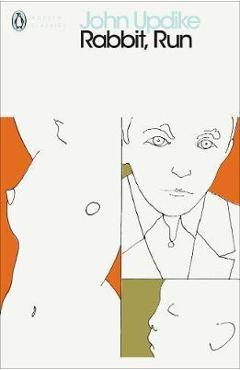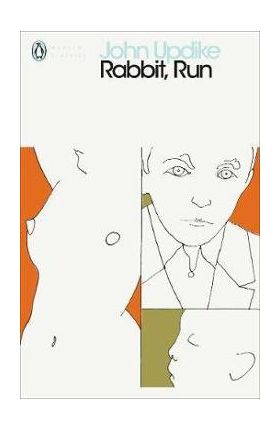Cosul este gol
Conectează-te ca să te putem notifica când primești un răspuns
The first book in his award-winning 'Rabbit' series, John Updike's Rabbit, Run contains an afterword by the author in Penguin Modern Classics. It's 1959 and Harry 'Rabbit' Angstrom, one time high school sports superstar, is going nowhere. At twenty-six he is trapped in a second-rate existence - stuck with a fragile, alcoholic wife, a house full of overflowing ashtrays and discarded glasses, a young son and a futile job. With no way to fix things, he resolves to flee from his family and his home in Pennsylvania, beginning a thousand-mile journey that he hopes will free him from his mediocre life. Because, as he knows only too well, 'after you've been first-rate at something, no matter what, it kind of takes the kick out of being second-rate'. John Updike (1932-2009) was born in Shillington, Pennsylvania. He graduated from Harvard College in 1954, and spent a year at Oxford, England, at the Ruskin School of Drawing and Fine Art. From 1955 to 1957 he was a member of staff at The New Yorker. Updike was the author of twenty-one novels as well as numerous collections of short stories, poems and criticism, and is one of only three authors to win more than one Pulitzer Prize. His most famous works are the Harry 'Rabbit' Angstrom series, all of which are published in Penguin Modern Classics: Rabbit, Run (1960), Rabbit Redux (1971), Rabbit is Rich (1981) and Rabbit at Rest (1990). If you enjoyed Rabbit, Run, you might like Don DeLillo's Americana, also available in Penguin Modern Classics. 'It is sexy, in bad taste, violent and basically cynical. And good luck to it' Angus Wilson, Observer 'That special polish, that brilliance; Updike is among the best' Malcolm Bradbury 'Brilliant and poignant ... By his compassion, clarity of insight, and crystal-bright rose, [Updike] makes Rabbit's sorrow his and our own' Washington Post



